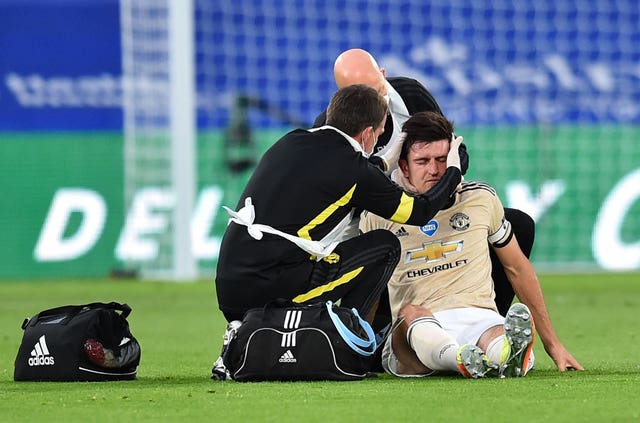The Professional Footballers Association has said it will “work hard” to ensure better safety for players with regard to head injuries and concussion.
The players’ union has been criticised for not fighting hard enough on the subject following a parliamentary inquiry.
A report from the Digital, Culture, Media and Sport (DCMS) committee of MPs has called for the Government to introduce UK-wide minimum concussion protocols that include all sports.
The PFA welcomes the Concussion in Sport inquiry, and we are grateful to @CommonsDCMS for giving us the opportunity to contribute to this report.
Full statement here: https://t.co/VX33uLktxu pic.twitter.com/wfBbVRE2ay
— Professional Footballers' Association (@PFA) July 22, 2021
It concluded not enough is being done by sports to combat concussion or to highlight the dangers of head injuries and the risk they can pose to long-term health.
The report specifically named the Football Association and the PFA, saying they had not “fought hard enough, or publicly enough, to address this issue”.
A statement from the union read: “The PFA welcomes the Concussion in Sport inquiry and we are grateful to the committee for giving us the opportunity to contribute to this report. We take the findings of the select committee’s inquiry very seriously.
“Brain injury and increased risk of neurodegenerative diseases in professional footballers is a vital issue relevant to our current and former members and future generations of players.
“The PFA is responsible for protecting and advocating for the safety and wellbeing of all members and former members. Inquiries such as this – and the independent scrutiny they provide of the footballing authorities – play a vital role in ensuring that we are able to perform this role as effectively as possible.

“We are working on a comprehensive strategy to better address the needs of our former members and their families living with a neurodegenerative condition. In the last 12 months, the PFA has started a consultation process with family members of former players and other interested parties to inform the PFA’s work in this area, both on and off the field.
“We are fully committed to using our voice and status within the game to drive progress, awareness, and action to support our current and former members.
“We will continue to fund research and work hard to identify and strengthen protections that can make a difference to players’ long-term health.
“The health and wellbeing of our members are paramount, and we will continue working with football’s stakeholders to take forward the recommendations within the report.”
The report also called on UK Sport to make Exchequer and Lottery funding to elite sports conditional on them implementing suitable concussion protocols and applying them, and for the funding body to pay for medical officers to attend major events like the Olympic and Paralympic Games to ensure protocols are followed.
The officers should also have the power to prevent athletes deemed to be at risk from competing.
A spokesperson for UK Sport said: “Integrity, welfare and effective performance culture are at the heart of our high-performance community and, alongside the English Institute of Sport (EIS), we are committed to ensuring that sports and athletes have access to the very best sports science and medical support in terms of diagnosis, recovery and returning to sport following a head injury.
“In partnership with DCMS, the EIS, sports and partners within the high-performance community, we will now take the time to thoroughly review the recommendations made in the Committee’s report.”




Comments: Our rules
We want our comments to be a lively and valuable part of our community - a place where readers can debate and engage with the most important local issues. The ability to comment on our stories is a privilege, not a right, however, and that privilege may be withdrawn if it is abused or misused.
Please report any comments that break our rules.
Read the rules here